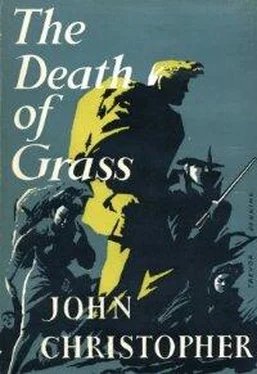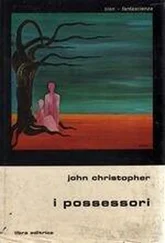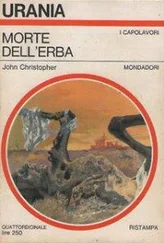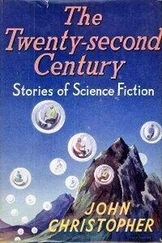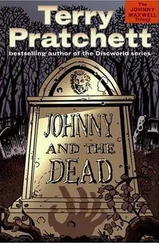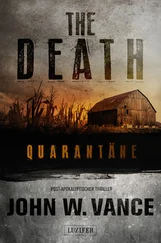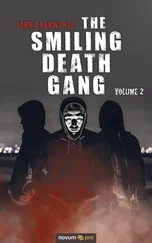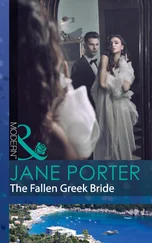At each junction they stopped the cars, and searched for the oil trail. It was far too inconspicuous to be seen without getting out of the cars. The third side road was on the outskirts of a village; there the trail turned right. A sign-post said: Norton 1½ m.
“I think this is our stretch,” Roger said. “We could try blazing right along in one of the cars. If we got past them with one car, we could make a neat sandwich. I think they would be between here and the next village. They sheered off sharply enough from this one.”
“It would work,” Pirrie said thoughtfully. “On the other hand, they would probably fight it out. They’ve got an automatic and a rifle and revolver in that car. It might prove difficult to get at them without hurting the women.”
“Any other ideas?”
John tried to think, but his mind was too full of sick hatred, poised between some kind of hope and despair.
Pirrie said: “This country is very flat. If one of us were to shin up that oak, he might get a glimpse of them with the glasses.”
The oak stood in the angle of the road. Roger surveyed it carefully. “Give me a bunk-up {93} 93 bunk-up: help somebody up by bending down so that he/she can climb on your back
to the first branch, and I reckon I shall be all right.”
He climbed the tree easily; he had to go high to find a gap in the leaves to give him a view. They could barely see him from below. He called suddenly:
“Yes!”
John cried: “Where are they?”
“About three-quarters of a mile along. Pulled into a field on the left hand side of the road. I’m coming down.”
John said: “And Ann—and Mary?”
Roger scrambled down and dropped from the lowest branch. He avoided John’s eyes.
“Yes, they’re there.”
Pirrie said thoughtfully: “On the left of the road. Are they pulled far in?”
“Clear of the opening—behind the hedge. If we went at them from the front we should be going in blind.”
Pirrie went across to the Ford. He came back with the heavy sporting rifle which was his weapon of choice.
He said: “Three-quarters of a mile—give me ten minutes. Then take the Citroen along there fast, and pull up a few hundred yards past them. Fire a few shots—not at them, but back along the lane. I fancy that will put them into the sort of position I want.”
Ten minutes!” John said.
“You want to get them out alive,” Pirrie said.
“They may—be ready to clear off before then.”
“You will hear them if they do. It will be noisy—backing out of a field. If you do, chase them with the Citroen and don’t hesitate to let them have it.” Pirrie hesitated. “You see, it will be unlikely that they will still have your wife and daughter with them in that case.”
And with a small indefinite nod, Pirrie started off along the road. A little way along he found a gap in the hedge, and ducked through it.
Roger looked at his watch. “We’d better be ready,” he said. “Olivia, Millicent—take the boys in the Ford. Come on, Johnny.”
John sat beside him in the front of the Citroen. He grinned painfully.
“I’m leading this well, aren’t I?”
Roger glanced at him. “Take it easy. You’re lucky to be conscious.”
John felt his nails tighten against the seat of the car.
“Every minute…’ he said. “The bloody swines! God knows, it’s bad enough for Ann, but Mary…”
Roger repeated: “Take it easy.” He looked at his watch again. “With luck, our friends along the road have got just over nine minutes to live.”
The thought crossed his other thoughts, irrelevantly, surprisingly; so much that he voiced it:
“We passed a telephone box just now. Nobody thought of getting the police.”
“Why should we?” Roger said. “There’s no such thing as public safety any longer. It’s all private now.” His fingernails tapped the steering-wheel. “So is vengeance.”
Neither spoke for the remainder of the waiting time. Still without a word, Roger started the car off and accelerated rapidly through the gears. They roared at the limit of the Citroen’s speed and noisiness along the narrow lane. In less than a minute, they had passed the opening to the field, and glimpsed the Vauxhall standing behind the hedge. The road ran straight for a further fifty yards. Roger braked sharply at the bend, and skidded the car across to take up the full width of the road.
John whipped open the door at his side. He had the automatic from Roger’s car; leaning across the bonnet of the Citroen, he fired a short burst. The shots rattled like darts against the shield of the placid summer afternoon. Then, in the distance, there were three more shots. Silence followed them.
Roger was still in the car. John said:
“I’m going through the hedge. You’d better stay here.”
Roger nodded. The hedge was thick, but John crashed his way through it, the blackthorn {94} 94 blackthorn: the sloe, a thorny shrub that has white flowers and small black fruit
spikes ripping his skin as he did so. He looked back along the field. There were bodies on the ground. From the far end of the field, Pirrie was sedately advancing, his rifle tucked neatly under his arm. Listening, John heard groans. He began to run, his feet slipping and twisting on the ploughed ground.
Ann held Mary cradled in her lap, on the ground beside the car. They were both alive. The groans he had heard were coming from the three men who lay nearby. As John approached, one of them—small and wiry, with a narrow face covered with a stubble of ginger beard—began to get up. One arm hung loosely, but he had a revolver in the other.
John saw Pirrie lift his rifle, swiftly but without hurry. He heard the faint phutting noise of the silenced report, and the man fell, with a cry of pain. A bird which had settled on the hedge since the first disturbance, rose again and flapped away into the clear sky.
He brought rugs from the car, and covered Ann and Mary where they lay. He said, speaking in a whisper, as though even the sound of speech might hurt them further:
“Ann darling—Mary—it’s all right now.”
They did not answer. Mary was sobbing quietly. Ann looked at him, and looked away.
Pirrie covered the last few yards. He kicked the man who lay nearest to him, dispassionately but with precision. The man shrieked, and then subsided again into moaning.
At that moment, Roger came through the gap from the road, revolver in hand. He examined the scene, his gaze passing quickly from the huddled woman and the girl to the three wounded men. He looked at Pirrie.
“Not as tidy a job as last time,” he observed.
“It occurred to me,” said Pirrie—his voice sounded as out of place in the calm summer countryside as did the scene of misery and blood in which he had played his part—“that the guilty do not have the right to die as quickly as the innocent. It was a strange thought, was it not?” He stared at John. “I believe you have the right of execution.”
One of the three men had been wounded in the thigh. He lay in a curious twisted posture, with his hands pressed against the wound. His face was crumpled, as a child’s might be, in lines of misery and pain. But he had been attending to what Pirrie said. He looked at John now, with animal supplication.
John turned away. He said: “You finish them off.”
With flat unhappy wonder, he thought: in the past, there was always due process of law. Now law itself is a casual word in a ploughed field, backed by guns.
His words had not been directed to anyone in particular. Looking down at Ann and Mary, he heard Roger’s revolver crack once, and again, and heard the gasp of breath forced out by the last agony. Then Ann cried out:
Читать дальше
